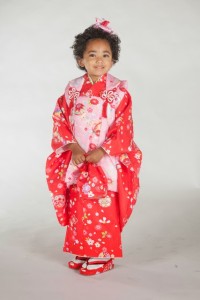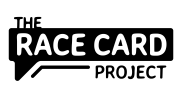David H Lippman,
Newark, NJ
My situation is different…my mother is English, my father a third-generation New Yorker, so I either sound like I come from The Bronx or from London.
The accents switch at the slight move of my tongue, which can be voluntary or involuntary. It’s involuntary if I’m talking about specific subjects. I can’t talk about baseball in an English accent. I can’t talk about British history in an American accent. It even impacts my emotional reactions. I can only say, “Bloody hell” in an English accent and “”Ya gotta be kidding me” in an American accent.
On numerous occasions, I will say some phrases in the “wrong accent,” which is involuntary. An outfielder makes a fine running catch at Yankee Stadium and I say to my pal, “That was rather well done,” in an English accent. I finish buying a pizza in New Zealand, rattle off the end of the order, and add, “That’s all she wrote” in my Bronx accent. Everybody gets puzzled.
Because of this dichotomy, I failed US Navy broadcasting audition. The instructor said my voice was a cross between Walter Cronkite (CBS) and John Snagge (BBC), two legendary newscasters. “Your voice is a cross between The Bronx and London,” the instructor said, which I knew.
However, I answered him, “Well, look here, old boy, (British) what the **** are youse talkin’ about? (Bronx)”
They sent me to a broadcast unit anyway, where, among other things, I had a radio show, and my Senior Chief, a great character, called me in said, “Dave, if you ever say ‘shhedule’ instead of ‘schedule’ again, I’ll kill you. It wasn’t the only time I lapsed into English on the station…I introduced a segment on the Nagasaki bombing by quoting William Shakespeare…in English. British English. Our headquarters guys commented on the segment: “Why is the narration in an English accent?”
When the sergeant who did the markup came to us, she got NOTHING but the English accent from me. She was puzzled and amused.
It leads to other things, some bad, some good. The bad was when I was a kid and my English voice was associated by my schoolmates with latent homosexuality. Therefore, I had to be beaten.
The good side was that I could understand both British humor (based on puns, absurdity, Benny Hill in a dress, Goon Show inside jokes, and Monty Python multiple characters and animation.
And American humor: Three Stooges slapstick, Marx Brothers three-corner lunacy, Mel Brooks satire, and Abbott trying to con Costello.
Totally different theories.
Other different theories: history itself. I had trouble when the Americans fought the British in two separate wars, even if the first created America. I had relatives on the British side. I had even more trouble with historical myths, as a guy who writes World War II history for magazines. The movie “Patton” is wrong. Montgomery was not a strutting, jealous, incompetent in a Paisley scarf. There was no “Race to Messina.” The movie scene never happened. WW2 was won by John Wayne, Errol Flynn (a Nazi sympathizer), and the kid from Arkansas who was too young to die.
More importantly, I do not and never will regard the Royal Family as a source of gossip, fashion, and entertainment. My family has served them in battle and as civil servants since 1680, all over the world, sometimes landing in unmarked graves, doing so at their command. They are direct connections to Britain’s past and who we are. When the Prince of Wales speaks out for the World Wildlife Fund and environmental conservation, when the Duke and Duchess of Sussex work on the Invictus Games, when the Duke of Cambridge goes to New Zealand to console victims and survivors of a ghastly hate crime, it’s reminding New Zealand that their future king is not a distant ruler, but — as he put it — the future head of “the family.” I take that seriously. Americans do not. They worship the Kennedys and the Kardashians. The former for glamor and wealth, the latter for glamor and low-cut dresses.
A few years ago, I went to an event hosted by the British Consul-General in New York to mark the 100th anniversary of The Somme. My great-uncle went over the top on the first day with the 1st London Scottish and was never seen again. Great War language is very familiar to me. After the event, two of our diplomat hosts said to me, “Well, we’re done here. You’ll have to leave now.”
I smiled and said, “That’s a diplomatic way to say ‘Naff off sharpish,’ right?” They cracked up.






